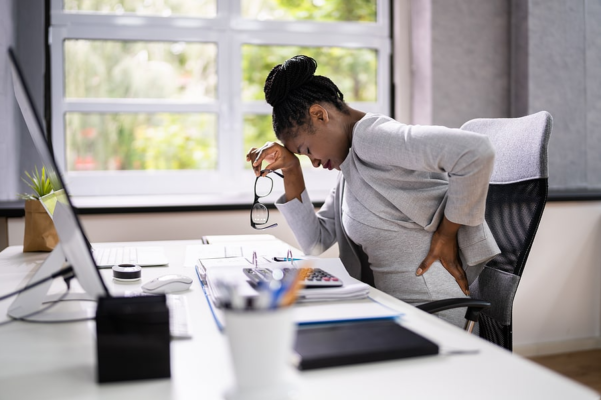Is sitting dangerous to your health?

Why sitting is dangerous to your health and what you should do about it?
Living a sedentary lifestyle can be dangerous to your health. The less sitting or lying down you do during the day, the better your chances of living a healthy life.
If you stand or move around during the day, you have a lower risk of early death than if you sit at a desk. If you live a sedentary lifestyle, you have a higher chance of being overweight, developing type 2 diabetes or heart disease, and experiencing depression and anxiety

When you sit, you use less energy than you do when you stand or move. Research has linked sitting for long periods of time with a number of health concerns. They include obesity and a cluster of conditions — increased blood pressure, high blood sugar, excess body fat around the waist, and abnormal cholesterol levels — that make up metabolic syndrome. Too much sitting overall and prolonged periods of sitting also seem to increase the risk of death from cardiovascular disease and cancer. For many of us, the average day involves a lot of time spent sitting. At our desk for most of the workday. In the car during our commutes Or running errands. On the bleachers at the kids’ sporting events. On the couch with our remotes, iPads, or books in hand. You get the idea.
This type of sedentary lifestyle has led a number of leading health experts to declare that sitting is the new smoking, meaning that the dangers of spending too much time on our rears are having serious effects on overall health.
Researchers have found that prolonged sitting increases the risk of developing serious illnesses like various types of cancer, heart disease, and type 2 diabetes, and more research on the subject is being done every day. The Annals of Internal Medicine recently noted the review of more than 21,000 studies on the risk of sitting.
Be more active at your desk
- Substitute a fitness ball for a standard office chair. Sitting on an unstable surface will activate your core muscles.
- Use a desk peddler, or do desk exercises.
- Sitting is best mitigated by frequent movement, even if it’s only done for brief periods of time. One of the easiest ways to do this is to stretch at your desk.
- During phone calls, stand up and pace.
When you think about our daily routine, once we get up in the morning, we: sit down to have breakfast, sit down in the car on the way to work, sit down at work all day, drive home, eat dinner sit down, and then sit on the couch to watch tv or surf the internet. That’s a lot of sitting down.
Why Is This A Problem?

Research shows that time spent sitting can lead to:
- Being overweight or obese
- Unhealthy blood-sugar levels and type-2 diabetes
- A greater chance of heart disease
- Other risk factors of poor health
In fact, it’s been shown that if we watch less than two hours of television a day, we can reduce the likelihood of developing these risk factors listed above.
It Hurts Your Heart
Scientists first noticed something was up in a study that compared two similar groups: transit drivers, who sit most of the day, and conductors or guards, who don’t. Though their diets and lifestyles were a lot alike, those that sat were about twice as likely to get heart disease as those that stood.
Weight
Moving your muscles helps your body digest the fats and sugars you eat. If you spend a lot of time sitting, digestion is not as efficient, so you retain those fats and sugars as fat in your body.
Even if you exercise but spend a large amount of time sitting, you are still risking health problems, such as metabolic syndrome. The latest research suggests you need 60–75 minutes per day of moderate-intensity activity to combat the dangers of excessive sitting
Stand more, But not too much
Standing work stations are available commercially or you can DIY. The key is to make sure that the desk is at the appropriate height for you.
Standing all day also comes with its own drawbacks, such as an increased risk of varicose veins and musculoskeletal disorders. While you can stand for as long as it feels comfortable, most experts recommend a 50:50 sit-stand ratio.
It Can Shorten Your Life
You’re more likely to die earlier from any cause if you sit for long stretches at a time. It doesn’t help if you exercise every day or not. Of course, that’s no excuse to skip the gym. If you do that, your time may be even shorter.
Breaking It Up And Sitting Less
Research suggests that no matter what your total sitting time is, regular interruptions from sitting (even just by standing up) may help to reduce your risk of developing heart disease and diabetes.
Sitting at a desk or driving can be a large part of many people’s work routine. So here are some simple ideas of how you can sit less and move more throughout the day.
sitting too much is dangerous even if you regularly exercise. Unless you have a job that keeps you moving, most of your non-exercise time is likely spent sitting. And that would make you an “active couch potato” a term coined by an Australian researcher to describe exercisers who sit most of their day. A 12-year research study of more than 17,000 Canadians, found that the more time people spent sitting, the earlier they died—regardless of how much they exercised.
You’ll Undo All That Exercise
The effects of too much sitting are hard to counter with exercise. Even if you work out 7 hours a week — far more than the suggested 2-3 hours — you can’t reverse the effects of sitting 7 hours at a time. Don’t throw away all that hard work at the gym by hitting the couch for the rest of the day. Keep moving!
Your Odds of Diabetes Rise
Yup, you’re more likely to have it, too, if you sit all day. And it isn’t only because you burn fewer calories. It’s the actual sitting that seems to do it. It isn’t clear why, but doctors think sitting may change the way your body reacts to insulin, the hormone that helps it burn sugar and carbs for energy.
But I Go To The Gym
Research shows that even if you are “physically active” (which means you do 30 minutes or more of moderate-intensity physical activity on most, if not all, days of the week), you can then further increase your health benefits by sitting less during the day.
You Could Get DVT
Deep vein thrombosis (DVT) is a clot that forms in your leg, often because you sit still for too long. It can be serious if the clot breaks free and lodges in your lung. You might notice swelling and pain, but some people have no symptoms. That’s why it’s a good idea to break up long sitting sessions.
Anxiety and depression
We don’t understand the links between sitting and mental health as well as we do the links between sitting and physical health yet, but we do know that the risk of both anxiety and depression is higher in people that sit more.
This might be because people who spend a lot of time sitting are missing the positive effects of physical activity and fitness. If so, getting up and moving may help.
